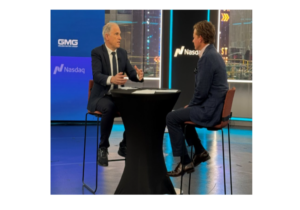These days, some stocks appear to be just one tweet away from freefall.
On Thursday, shares of Snapchat parent Snap Inc. (SNAP) dipped as much as 8.5{efe5d79870c08482e17ab0c97855f89429dac5f22c46026d3ca83573faec2208}, extending a multiday slide and losing over $1 billion in market capitalization. The reason? It wasn’t because the messaging-app’s parent company slashed guidance. It wasn’t because the stock was removed from the Goldman Sachs “Conviction Buy” list. It wasn’t because a respected analyst cut revenue forecasts.
The apparent reason: this tweet from social media princess Kylie Jenner exclaiming “sooo does anyone else not open Snapchat anymore? Or is it just me… ugh this is so sad.”
To be fair, Snap shares had already been in decline in previous days since some observers noted a decline in usership following a change to the interface design. But 20-year-old Ms. Jenner, with 24.5 million Twitter followers and one of the most-watched people on Snapchat, no doubt triggered alarm among investors. After all, the loss-making company’s shares have had a rough ride since going public last year as investors wonder if its popularity will last and if profits will ever come.
There’s a lesson in all of this for investors in growth-stage companies. Indeed, while Snapchat isn’t profitable, it has a serious business model and earned $825 million of revenue last year. Investors in less-established stocks may be even more at risk of a social media “influencer” doing damage to the reputation of a business.
“A company whose value is based on perception has the biggest issues with reputation management,” says Hersh Davis-Nitzberg, founder of Reputation Control Inc., which he launched in 2007. Mr. Davis-Nitzberg helped pioneer the reputation management industry and is the number-one rated reputation management consultant in America.
“The more subjective the product the greater chance the product could be hurt by influencers,” he says.
How can Reg A+ investors prepare from such risks? There are a number of considerations that should be kept in mind when assessing vulnerability to influencers.
First, investors should look for credible sources supporting a company’s business and financial prospects. Without other voices, the influencer operates in a vacuum and will by definition have a dominant voice. Unfortunately, most Reg A+ companies don’t yet have sell-side analyst coverage and rarely get attention from legitimate news outlets. That leaves the burden on investors to do a lot of their own work.
One easy way question to ask: Has the business actually sold anything yet? A company like Bitzumi, which we covered in this article, doesn’t yet have any revenue but is about to spend a great deal on marketing and advertisements. Similarly, electric-vehicle technology firm Adomani, which listed last year and completed a secondary offering in January, had no sales in the nine months through September 2017, the most recent period when it reported.
By contrast, there are Reg A+ stocks with demonstrably successful business models that we have highlighted. iPic Entertainment, covered in this report, has a proven business and consistent store-level profits. Similarly, restaurant franchiser Fat Brands, as explained in this piece, continues to earn profits from franchise fees and has a well-defined rollup strategy in place.
As more Reg A+ IPOs come through the year, there will almost certainly be a mix of healthy businesses and half-baked proposals. Investors should consider trying the Kylie Jenner test before forking out cash for any new shares.







